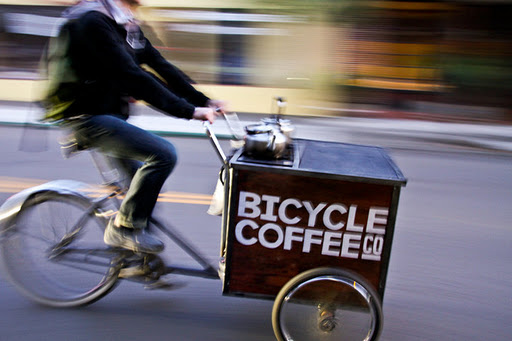
Caffeine is a drug that can be used in appropriate ways, so it has definite value. This post covers a few uses of caffeine.[wlm_private 'PRO-Platinum|PRO-Monthly|PRO-Gratis|PRO-Seasonal|Platinum-trial|Monthly-trial|PRO-Military|30-Days-of-PRO|90 Day PRO|Stages-Instructor|Schwinn-Instructor|Instructor-Bonus|28 Day Challenge']
Ergogenic Aid
Much has been written about the ergogenic benefits of caffeine, particularly for endurance athletes, so it”™s unnecessary to go into detail here.
Bottom line, caffeine can help athletes work harder and generate more power, often without feeling the extra effort. They may not even realize they”™re putting out more effort, although the power increase could be as much as 3%.
It”™s a good idea to get accustomed to caffeine in training before using it during a performance event, whatever that may be. My advice has always been, “No surprises on race day.”
Know how caffeine affects you and how much you can safely consume without upsetting your stomach or causing anxiety, irritability, high heart rate, or insomnia.
Brain Chem and Caffeine
When we drink coffee or tea, caffeine occupies the brain receptors that are normally occupied by adenosine. Adenosine inhibits the release of dopamine and norepinephrine — two brain alertness chemicals — to prevent an over-release of them.
When caffeine ‘takes over”™ the adenosine receptor, adenosine can”™t inhibit dopamine and norepinephrine, so those two chemicals are disinhibited. We feel alert and may notice improvements in memory, mood, energy, reaction time and general cognitive function.
Protein can also make us feel alert.
Why Do We Need Protein When We Can Just Drink Coffee?
The two mechanisms of action are completely different. While caffeine uses (and eventually depletes) stored brain levels of dopamine and norepinephrine, protein provides the amino acids that the brain uses to make more. The amino acids are tyrosine and phenylalanine.
If you haven”™t been eating much protein for a while, you might find yourself drinking more coffee. Or you might discover that you get less effect from any caffeine you have because brain stores are already depleted.
On the other hand, if you systematically and consistently eat more protein foods, you might find you don”™t need or want as much coffee or tea because your brain keeps making — and releasing — dopamine and norepinephrine.
(Sleep restores dopamine, too, but that”™s a separate topic.)
Health Benefits of Coffee and Tea
Recent research has shown beneficial effects of coffee consumption. Coffee contains antioxidants and has been found to reduce the risk of type 2 diabetes, endometrial cancer, skin melanoma, multiple sclerosis, Alzheimer”™s, and heart disease.
The benefits of green tea have long been known. It contains powerful antioxidants, can reduce anxiety, and can improve dental health. Like coffee, it may also reduce the risk of Alzheimer”™s, type 2 diabetes, heart disease, certain cancers, and Parkinson”™s.
Caffeine As a Pain Reliever
It”™s less frequently mentioned, but relieving pain could be considered another benefit of caffeine. Norepinephrine and dopamine both trigger an analgesic effect. Plenty of potent pain-killing substances are available, but caffeine could be seen as a more natural pain reliever, especially in light of the health benefits listed above.
Unsweetened Is Better
Do I need to mention that sugar could reverse most of the beneficial effects covered in this post? Limit fancy coffees with exotic names. Sticking with the basics is a healthier choice.[/wlm_private]
- Motivation vs. Enthusiasm - December 29, 2025
- Focus - August 16, 2025
- Raw Food Diets: How Good Are They For Us? - March 17, 2025

